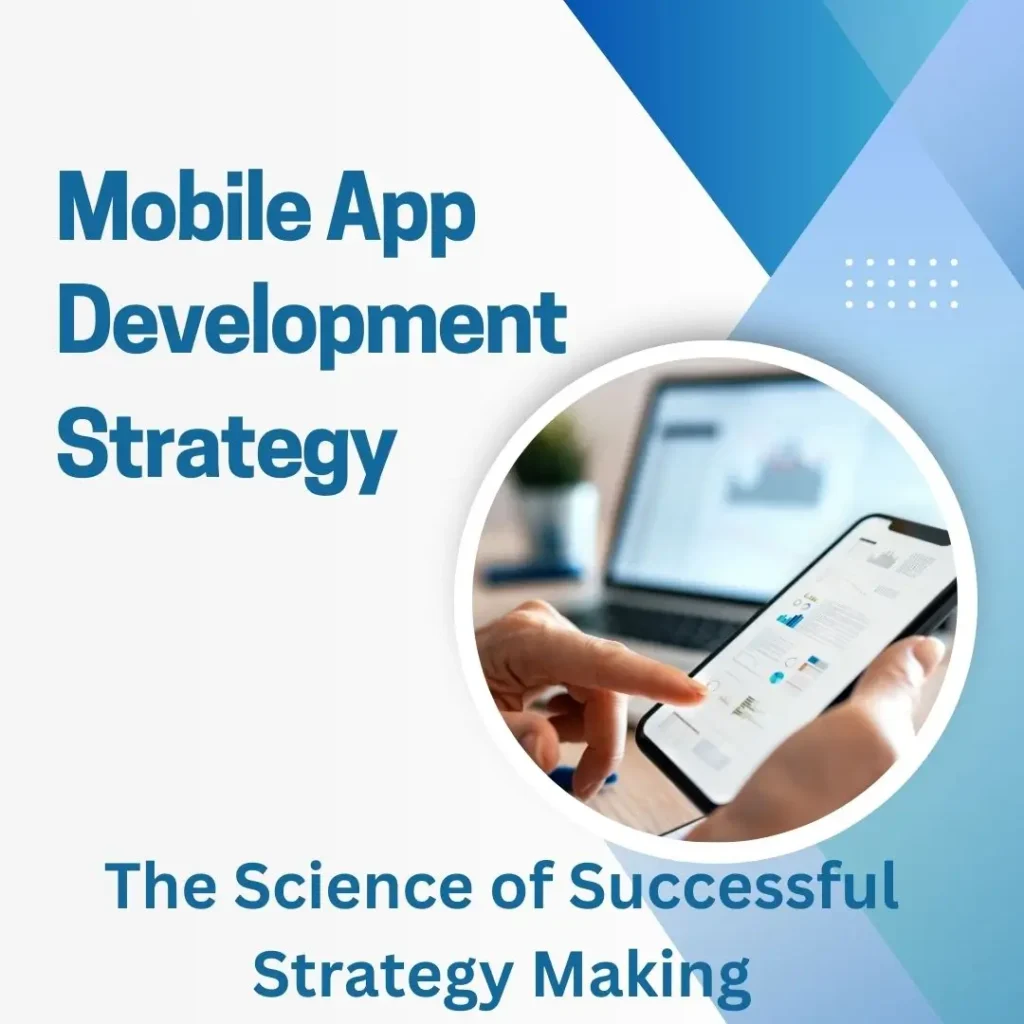Crafting a successful mobile app involves more than just coding prowess—it requires a well-defined Mobile App Development Strategy that integrates design, psychology, and innovation. In this article, we’ll explore the scientific principles that underlie effective mobile app development strategies, delving into user-centric design, data-driven decisions, scalable architecture, and the importance of balancing technical expertise with user experience.
Understanding the Foundation of App Development Strategy
A Mobile App Development Strategy serves as a roadmap for creating apps that resonate with users and meet business objectives. It’s more than just coding; it’s about orchestrating a comprehensive plan that spans ideation to post-launch support. This scientific approach involves analyzing user behavior, aligning app features with cognitive psychology principles, and utilizing data analytics for informed decision-making.If you’re interested in learning more about web development best practices and how they align with creating effective mobile apps, you can explore web development best practices for valuable insights
When mobile app developers embark on a new project, the journey starts with an app idea. This concept is the seed from which a strategic plan blooms. Developers consider the target audience, the app’s purpose, and its unique value proposition. All these elements contribute to shaping the eventual app.
The Science Behind User-Centric Design

Modern app development strategies revolve around user-centric design—a philosophy deeply rooted in cognitive psychology. By incorporating principles from cognitive science, developers create interfaces that align with users’ mental models, minimizing cognitive load and enhancing engagement. Apps that prioritize user-centric design forge emotional connections with users, leading to higher retention rates and positive reviews. Want to discover more about effective web design that matches user-centric principles? Check out characteristics of effective web design.
When mobile application development teams implement a user-centric approach, they focus on creating a seamless experience in line with user expectations. The navigation through the app stores should be intuitive, and the user interface should cater to various demographics. This scientific understanding of user behavior drives the success of the app.
Leveraging Data-Driven Decisions
Data holds the key to informed decision-making in mobile app development projects. By analyzing user data, developers gain insights into usage patterns, preferences, and pain points. This empirical insight fuels iterative development, enabling constant refinement of app features based on real-world usage data. Adopting this scientific approach empowers developers to adapt swiftly to evolving user needs, resulting in resilient and successful apps.
The integration of data analytics tools in the mobile app development process is akin to a laboratory for app creators. It allows them to gather real-time insights on user interactions, preferences, and pain points. This scientific method of gathering data informs subsequent decisions, resulting in enhancements that resonate with the app users.
Applying Cognitive Psychology to App Flow

Cognitive psychology offers valuable insights into user interaction with apps. The arrangement of information, hierarchy of screens, and seamless flow all stem from cognitive principles. Developers who grasp these psychological triggers craft apps that feel intuitive and familiar, elevating user satisfaction. The science of cognitive psychology transforms app interfaces from convoluted to instinctive.
When considering the mobile app development environment, this psychological understanding is pivotal. The development process should be designed to ensure that the app’s user base can easily navigate through the app’s features. The mobile app development company aims to create a harmonious user experience by aligning the app’s navigation with users’ cognitive expectations. For additional insights and tips on how to optimize your Android app’s performance, be sure to check out our recent blog post on ‘Maximizing Performance for App Development for Android: Tips and Tricks‘.
A/B Testing and Iterative Development
Like scientists conducting experiments, developers iterate to refine their hypotheses. A/B testing, where different versions of a feature are tested, serves as their laboratory. This scientific approach identifies the version that resonates best with users, leading to incremental enhancements. Through this iterative process, developers continuously elevate their app, ensuring alignment with user preferences.
In the world of mobile app development, iterative development is akin to hypothesis testing. Just as scientists test their theories repeatedly to refine their understanding, developers use A/B testing to refine their app’s features. This scientific approach ensures that the app remains relevant and engaging for its user base.
Scaling with Scalable Architecture
Behind every app lies its architecture—a critical determinant of success, particularly during rapid scaling. Modular, microservices-based, or serverless architectures offer a scientific solution, ensuring responsiveness even under high load. This architectural approach guarantees a reliable and seamless user experience, even as user numbers surge.
The choice of native application or cross-platform development using tools like React Native is a strategic decision that stems from the scientific understanding of the app’s purpose and user base. Cross-platform solutions offer the advantage of maintaining a single codebase, which can lead to cost savings and faster development times.
The Role of Innovation and Market Trends
Mobile app development is dynamic, subject to shifting trends. Successful developers are akin to scientific explorers, embracing emerging technologies and market trends. By integrating AI, AR, or blockchain, apps can stand out in a competitive landscape. This scientific pursuit of innovation not only sets apps apart but also equips them to adapt to changing technological horizons. For insights into how modern website design principles align with the ever-evolving market trends.
The integration of innovative technologies like AI or AR is the hallmark of a forward-looking mobile app development strategy. This approach aligns with the ever-evolving market trends and ensures that the app remains relevant to its user base.
Balancing Technical Excellence with User Experience
Exceptional apps harmonize technical brilliance with a seamless user experience. Balancing these elements mirrors an artistic scientific endeavor. Developers must master technical finesse while ensuring intricate codes translate into smooth user interactions. Striking this equilibrium guarantees an app that performs impeccably and captivates users.
The choice of development environment, whether it’s a native framework or a cross-platform solution, is informed by the scientific understanding of the app’s requirements. Developers evaluate technical factors, user preferences, and the business model to make a strategic decision that results in a seamless user experience.
Conclusion
Mobile app development is a fusion of science and strategy, culminating in exceptional user experiences. A robust Mobile App Development Strategy merges cognitive psychology, data analytics, iterative testing, and innovative architecture. The synergy of these scientific principles yields apps that transcend functionality to evoke delight. By embracing and applying this scientific foundation, developers craft apps poised to navigate evolving landscapes, exceed user expectations, and attain enduring success. In a world driven by mobile applications, the science behind their creation paves the way for limitless possibilities.







